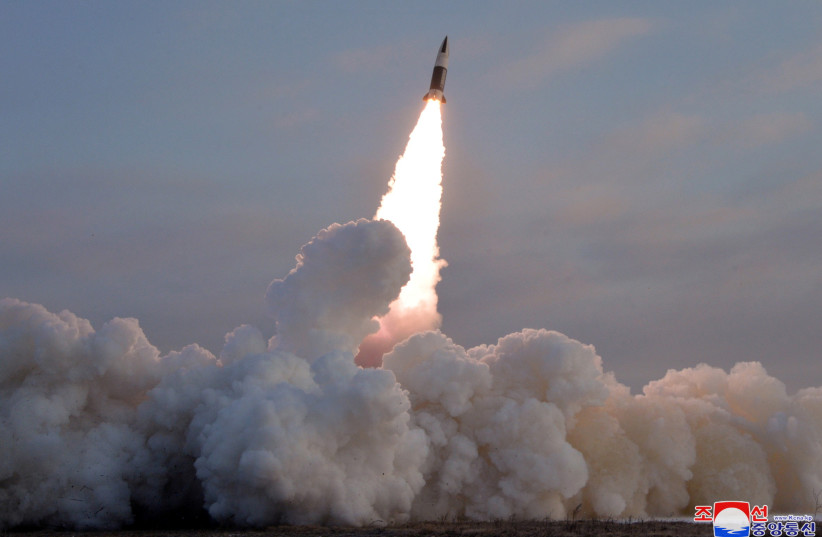North Korea's missile tests are "serious, unlawful" provocations, senior officials from South Korea, the United States and Japan said on Wednesday, as they urged it to return to dialog and accept help to tackle COVID-19.
South Korea Vice Foreign Minister Cho Hyun-dong, US Deputy Secretary of State Wendy Sherman and Japanese Vice Foreign Minister Takeo Mori leveled the criticism as they met in Seoul, days after North Korea conducted its latest missile tests and with signs it is preparing what would be its first nuclear test since 2017.
The three-way meeting of the countries' second most senior diplomats, the first such gathering since November and the first since President Yoon Suk-yeol took office in South Korea in May, highlighted international anxiety about North Korea's intensifying weapons tests.
The three countries urged North Korea to abide by international sanctions and immediately cease actions that "escalate tensions or destabilize the region," they said in a statement.
They also pledged to ramp up their security cooperation to meet the North's threats, with Sherman reaffirming US defense commitments, including "extended deterrence," which means the ability of the US military, particularly its nuclear forces, to deter attacks on allies.

"They stressed that a path to serious and sustained dialog remains open and urged the DPRK to return to negotiations, while also expressing their hope that the DPRK will respond positively to international offers of assistance to fight against COVID-19," they said, referring to North Korea by the initials of its official name, the Democratic People's Republic of Korea.
North Korea for the first time confirmed an outbreak of the coronavirus last month.
It has reported more than 4.2 million people with fever among its 25 million population. It lacks COVID testing capacity and has not said how many coronavirus cases it has.
South Korea and the United States have both offered North Korea help with COVID but said it had not responded.
TESTING TIMES
North Korea has carried out at least 18 rounds of weapons tests this year, underscoring its evolving nuclear and missile arsenals.
In its latest test, it fired eight short-range ballistic missiles, likely its largest single launch, a day after South Korea and the United States ended joint military drills involving a US aircraft carrier.
The allies launched eight surface-to-surface missiles on Monday in their own show of force in response to the North's test.
South Korea's Yoon, who took office in May, and US President Joe Biden vowed at a recent summit to deploy more US strategic military assets to bolster extended deterrence.
Yoon expressed serious concern about the North's tests and vowed to respond sternly to "illegal actions" but would leave the door open for dialog, his office said on Wednesday.
He made the comment in a video call with Nguyen Phu Trong, chief of Vietnam's Communist Party which has long ties with North Korea, asking him to help bring it to negotiations.
Yoon's deputy national security adviser, Shin In-ho, said the government would come up with "fundamental measures to practically incapacitate" North Korea's threats.
South Korean officials have said the North has conducted experiments with a detonation device in preparation for its seventh underground nuclear explosion, which Sherman has said would trigger a strong and clear response.
A test could come as early as next week, before a plenary meeting of the North Korean Workers' Party's central committee, some analysts said. North Korea conducted nuclear tests in 2013 and 2017, just before the committee's meetings.
Sherman reiterated a US offer of talks.
"The United States remains prepared to meet the DPRK without preconditions and we iterate again, we have no hostile intent toward the DPRK," she told a news conference.
